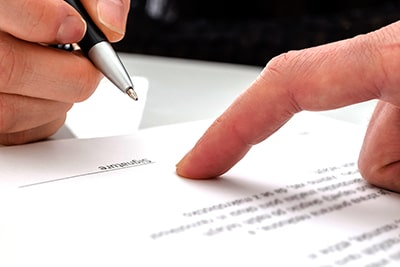Australia- UK Pact on Mutual Professional Recognition for Lawyers
 After Australia's Free Trade Agreement, its professional services sector supports internationalisation with a mutual recognition unit by helping professionals practice abroad. It ensures that professionals such as accountants, architects, engineers, lawyers, physiotherapists, veterinarians, teachers and others have access to foreign markets.
After Australia's Free Trade Agreement, its professional services sector supports internationalisation with a mutual recognition unit by helping professionals practice abroad. It ensures that professionals such as accountants, architects, engineers, lawyers, physiotherapists, veterinarians, teachers and others have access to foreign markets.
Australia is one of the top four largest services exporters, meanwhile professional services play an indispensable role in captivating international trade and investment which eventually promote economic growth and business of the country.
The major issue of Intra-jurisdictional inconsistencies:
The UK Legal Council considers that the contemporary process for Australian lawyers should be admitted as lawyers in England and Wales through the Lawyers Qualification Examination (SQE) test. This is often the relatively simple process that may be replicated within the Lawyer Eligibility Examination (SQE). The Law Council optimises that any concessions or exclusions granted to Australian lawyers under the SQE will recognise the correspondence between legal professional credentials in Australian jurisdictions.
Mutual Recognition of Australian/UK Lawyers:
The present regulatory environment is not equivalent to mutual recognition or even equal treatment:
In Australia, UK lawyers needed to require a minimum of one additional subject of tertiary studies before they'll be admitted (constitutional law). Depending on the discrete subjects undertaken in their undergraduate training they may also have to undertake additional tertiary education in administrative law and ethics and professional responsibility to ensure they have adequately covered off the “Priestly 11” legal knowledge necessities for admission.
On the opposite hand, Australian lawyers must undertake the Solicitors Qualified Exam and assessments to become a solicitor in England and Wales. There are exclusions and recognition of prior experience for lawyers qualified within the EEA/EU/Switzerland, lawyers qualified in Northern Ireland or Scotland, barristers who have qualified in England and Wales and completed a pupillage and someone who has completed a pupillage and someone who has finished the LPC in England and Wales, but not for Australian lawyers.
But after the mutual recognition, both countries have access to each other's legal market.
Access to many rights after this AU-UK mutual recognition agreement:
It has been acknowledged that Australia and the UK have good access to each other’s service markets.
After this Australia – UK pact, UK lawyers can readily practise UK law in Australia on either a temporary or permanent basis. As Australian-registered foreign lawyers, there are not any restrictions on UK lawyers practising UK law in Australia on their account, as employees, in partnership with Australian and/or other foreign lawyers or within any of the choice business structures available to Australian law practices. They will work on a fly-in / fly-out basis.
The right to establish a commercial presence (through a branch office or other legal presence with a right to establish one or more commercial presences as provided to local lawyers) and, where a poster presence has been established, the choice to use the firm name employed in Australia respecting local customs or usage within the host country. They also have the right to cover multiple jurisdictions of laws which earlier Australian legal service providers or employees were not qualified to advise but now they are qualified to advise.
Now there is an option for local lawyers and law firms to enter into commercial association with the freedom to negotiate fee and profit-sharing arrangements. They have the right to appear in arbitrations, conciliations and mediations. Also, they can provide services as Arbitrators, Conciliators and Mediators.
Admission to the legal profession for UK lawyers in Australia:
 Concerning UK lawyers, if they are willing to take admission to the Australian legal profession it is mandatory to obtain tertiary academic qualifications that at least of 3 years of full-time study of law which includes prescribed 11 subjects.
Concerning UK lawyers, if they are willing to take admission to the Australian legal profession it is mandatory to obtain tertiary academic qualifications that at least of 3 years of full-time study of law which includes prescribed 11 subjects.
The application has to be sent to the admitting authority in the State or Territory in which they intend to seek admission. With their training and experience, the academic qualification of a foreign lawyer will be confirmed by the academic authority.
As for lawyers from the UK, it is said that the applicant will be required to undertake additional academic study in four to six subjects, including Federal and State Constitutional Law, Administrative Law, and Ethics and Professional Responsibility.
The UK Law Council considers that the current process for Australian lawyers to be admitted as solicitors in England and Wales through the Solicitors Qualifying Examination (SQE) test. It also understands that this is the relatively straightforward process that will be replicated in the Solicitors Qualifying Examination (SQE). The Law Council hopes that any concessions or exemptions afforded to Australian lawyers under the SQE recognise the equivalence between legal professional qualifications in Australian jurisdictions.
Conclusion:
 Now, junior lawyers in the UK may soon be able to practice in Australia without having to prequalify a post-Brexit trade deal with Australia. The government said the UK-Australia Free Trade Agreement (FTA) would ensure mutual recognition of professional qualifications, allowing lawyers to practice in the country without the need to pre-qualify or pursue studies. In the UK admission process, some are exempt from undertaking the Bar's professional course, while others are required to undertake an intensive weekend of advocacy. Some are required to undertake a reduced period of pulling. While this process may be consistent with the seniority of the lawyer, there are no clear guidelines on admission requirements and exemptions available for foreign lawyers.
Now, junior lawyers in the UK may soon be able to practice in Australia without having to prequalify a post-Brexit trade deal with Australia. The government said the UK-Australia Free Trade Agreement (FTA) would ensure mutual recognition of professional qualifications, allowing lawyers to practice in the country without the need to pre-qualify or pursue studies. In the UK admission process, some are exempt from undertaking the Bar's professional course, while others are required to undertake an intensive weekend of advocacy. Some are required to undertake a reduced period of pulling. While this process may be consistent with the seniority of the lawyer, there are no clear guidelines on admission requirements and exemptions available for foreign lawyers.
 English
English
 عربي
عربي Русский
Русский 官话
官话 português
português
 Türk
Türk 




